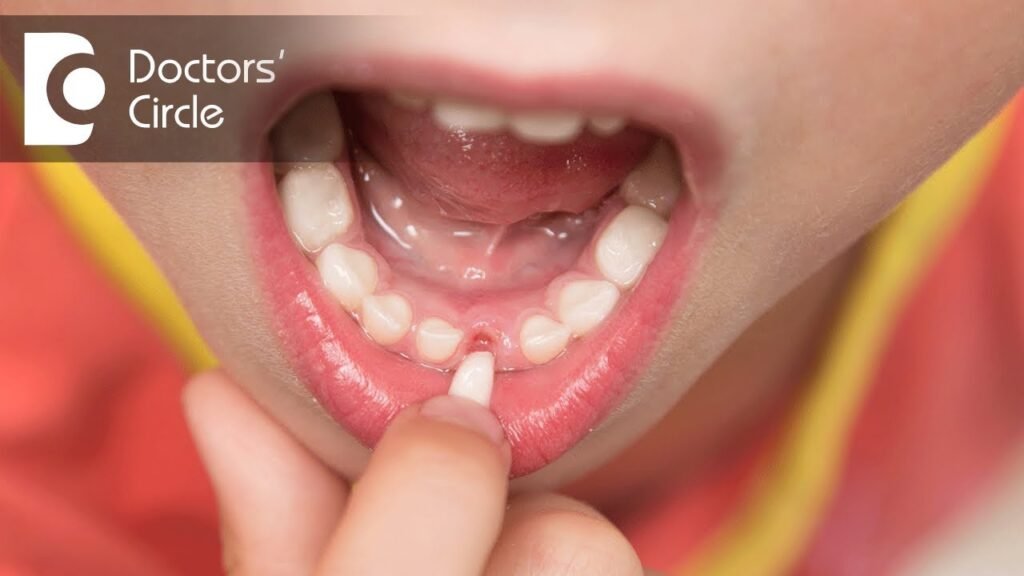Understanding Tooth Loss: Causes and Prevention

Have you ever wondered how teeth fall out? From childhood to adulthood, losing a tooth can be a common and natural occurrence. In this article, we will explore the fascinating process of how teeth fall out, including the role of baby teeth, adult teeth, and the factors that can cause tooth loss. Get ready to uncover the secrets behind this universal dental phenomenon!
How do teeth naturally fall out?
As children grow, the process of losing their baby teeth is a natural and common occurrence. Typically, between the ages of 5 and 7, children will begin to experience loose teeth as their new permanent teeth start to push through. As the new tooth eats away at the root of the baby tooth, it becomes loose and eventually falls out, making way for the permanent tooth to take its place. This natural process is a key part of a child's dental development and should be handled with care and attention.
How do babies lose their teeth?
Babies' teeth fall out naturally as their roots shrink and resorb, making them loosen on their own. This process occurs when it's time for the adult teeth to start erupting, with the new teeth pushing from beneath to help the baby teeth eventually fall out.
What causes teeth to fall out?
The leading cause of tooth loss is periodontal disease, which is often the result of poor oral hygiene and can be exacerbated by factors such as tobacco use and certain medications. In addition to this, injuries and oral-dental trauma can also contribute to teeth falling out. It is important to maintain good oral hygiene and seek regular dental care to prevent and address potential causes of tooth loss.
Uncovering the Root Causes of Tooth Loss
Tooth loss can be a result of various factors, including poor oral hygiene, genetics, and underlying health conditions. Neglecting regular dental check-ups and cleanings can lead to decay and gum disease, ultimately causing teeth to become loose and fall out. Genetics also play a role in determining the strength and health of our teeth, with some individuals being more predisposed to conditions that lead to tooth loss. Additionally, health issues such as diabetes and osteoporosis can impact oral health, making individuals more susceptible to tooth loss.
Understanding the root causes of tooth loss is crucial in preventing further damage and maintaining a healthy smile. By addressing issues such as poor oral hygiene, genetic predispositions, and underlying health conditions, individuals can take proactive steps to preserve their teeth and prevent future tooth loss. Regular dental care, proper oral hygiene practices, and a healthy lifestyle can all contribute to stronger teeth and gums, ultimately reducing the risk of tooth loss in the long run.
Preserving Your Smile: Strategies for Prevention
Taking care of your oral health is crucial for preserving your smile. By practicing good oral hygiene, including brushing and flossing daily, you can prevent tooth decay and gum disease. Additionally, regular dental check-ups and cleanings can help catch any issues early on and prevent them from progressing. Avoiding sugary foods and beverages, as well as quitting smoking, can also contribute to maintaining a healthy and beautiful smile. Ultimately, prevention is key to preserving your smile for years to come.
Say Goodbye to Tooth Loss: Essential Tips for Dental Health
Say goodbye to tooth loss by following these essential tips for dental health. Maintaining good oral hygiene is key to preventing tooth loss, so be sure to brush and floss regularly. Additionally, visiting your dentist for regular check-ups and cleanings can help catch any issues early on before they escalate. Eating a balanced diet and avoiding sugary foods can also contribute to healthier teeth and gums. By taking these simple steps, you can keep your smile bright and say goodbye to tooth loss for good.
In summary, understanding the natural process of how teeth fall out is crucial for maintaining proper oral hygiene and dental health. By recognizing the key stages and factors that contribute to tooth loss, individuals can take proactive steps to prevent issues such as decay, gum disease, and premature tooth loss. With regular dental check-ups, good oral hygiene practices, and a healthy diet, individuals can promote strong and healthy teeth for a lifetime.